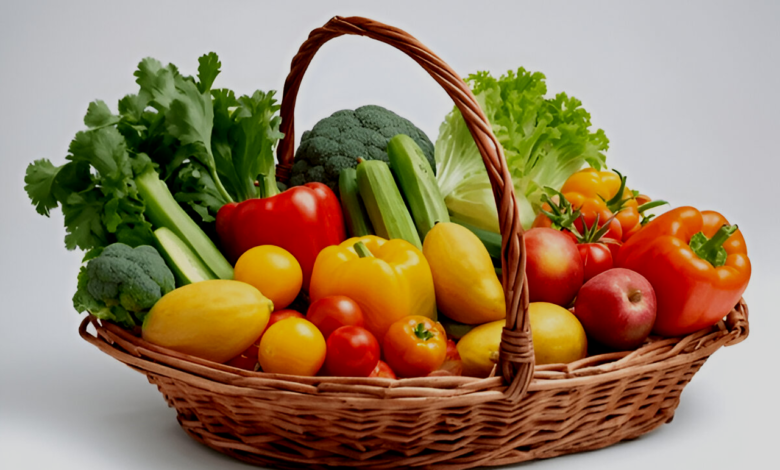Brain-Boosting Foods to Improve Focus & Concentration
Brain-boosting foods enhance focus and concentration naturally. top nutrient-rich foods to sharpen your mind and boost cognitive performance.

In today’s fast-paced world, maintaining sharp focus and concentration can feel like an uphill battle. Fortunately, brain-boosting foods offer a natural and effective way to enhance cognitive performance, support mental clarity, and sustain energy levels throughout the day. The connection between diet and brain health is well-documented, with research showing that specific nutrients can influence neurotransmitter activity, protect against oxidative stress, and even promote the growth of new brain cells. Whether you’re a student preparing for exams, a professional navigating tight deadlines, or simply someone looking to stay mentally agile, understanding how to fuel your brain with the right foods can be transformative. This article explores the science behind these nutritional powerhouses, offering actionable insights to help you optimize your diet for peak mental performance.
The modern diet, often laden with processed sugars, unhealthy fats, and artificial additives, can contribute to brain fog, fatigue, and diminished productivity. By contrast, a diet rich in whole foods—such as leafy greens, fatty fish, nuts, and berries—provides the vitamins, minerals, and antioxidants necessary to combat inflammation, enhance neural communication, and improve memory. Beyond immediate cognitive benefits, these foods also play a long-term role in protecting against age-related decline and neurodegenerative diseases. As we delve deeper into the specifics of brain-boosting foods, we’ll uncover how simple dietary swaps and mindful eating habits can unlock your brain’s full potential.
The Science of Brain-Boosting Nutrients
The human brain, though only accounting for 2% of body weight, consumes nearly 20% of the body’s energy. This high metabolic demand makes it exceptionally sensitive to nutritional deficiencies. Key nutrients like omega-3 fatty acids, found abundantly in salmon, walnuts, and flaxseeds, are critical for maintaining the structural integrity of brain cells. These healthy fats form cell membranes, support synaptic plasticity, and enhance communication between neurons, directly impacting learning and memory. Studies have shown that individuals with higher omega-3 intake exhibit better cognitive function and reduced risk of dementia.
Antioxidants, another cornerstone of brain health, neutralize free radicals that cause oxidative stress—a major contributor to cognitive decline. Blueberries, often dubbed “brain berries,” are packed with anthocyanins, which cross the blood-brain barrier to improve signal pathways and stimulate neurogenesis. Similarly, dark chocolate (with at least 70% cocoa) contains flavonoids that boost blood flow to the brain, enhancing alertness and problem-solving skills. Vitamin E, prevalent in almonds and sunflower seeds, further protects neuronal membranes from oxidative damage, while vitamin K in leafy greens like kale and spinach supports the synthesis of sphingolipids, essential for healthy brain cell structure.
B vitamins, particularly
B vitamins, particularly B6, B9 (folate), and B12, play a pivotal role in maintaining optimal brain function and overall cognitive health. These vitamins are essential for the metabolism of homocysteine, an amino acid that, when present in high levels, is associated with brain atrophy and an increased risk of neurodegenerative diseases like Alzheimer’s. Vitamin B6, found in foods such as chickpeas, salmon, and potatoes, is crucial for the production of neurotransmitters like serotonin and dopamine, which regulate mood, focus, and memory. Folate, abundant in leafy greens, legumes, and fortified cereals, supports DNA synthesis and repair, ensuring the proper functioning of brain cells. Vitamin B12, primarily found in animal products like eggs, dairy, and fish, is vital for maintaining the myelin sheath that protects nerve fibers and facilitates efficient neural communication. Together, these B vitamins work synergistically to support mental clarity, reduce brain fog, and promote long-term cognitive resilience.
A deficiency in B vitamins can have significant repercussions on brain health. Low levels of B12, for instance, are linked to memory loss, confusion, and even depression, particularly in older adults. Similarly, insufficient folate intake during pregnancy can impair fetal brain development, highlighting the importance of these nutrients across all stages of life. For vegetarians and vegans, who may struggle to obtain adequate B12 from plant-based sources, fortified foods or supplements can help bridge the gap. Incorporating a variety of B vitamin-rich foods into your diet not only enhances immediate cognitive performance but also provides a protective buffer against age-related cognitive decline. By prioritizing these essential nutrients, you can ensure your brain remains sharp, focused, and resilient in the face of daily challenges.
Hydration
Hydration is a cornerstone of optimal brain function, yet it is often overlooked in discussions about cognitive health. The brain is approximately 75% water, and even mild dehydration can impair its ability to perform essential tasks. Studies have shown that a fluid loss of just 1-2% of body weight can lead to difficulties in concentration, short-term memory, and decision-making. Water is essential for maintaining the balance of electrolytes, which are crucial for transmitting electrical signals between neurons. Without adequate hydration, these signals can become sluggish, leading to slower reaction times and reduced mental clarity. Additionally, dehydration can cause fatigue and headaches, further hindering productivity and focus. For those looking to stay sharp throughout the day, drinking water consistently is as important as eating brain-boosting foods.
Beyond plain water, certain beverages can offer additional cognitive benefits. Herbal teas, such as green tea or ginkgo biloba, not only hydrate but also contain compounds like polyphenols and catechins that enhance cerebral blood flow and reduce inflammation. Coconut water is another excellent option, as it provides natural electrolytes like potassium and magnesium, which support nerve function and hydration. On the other hand, caffeinated drinks like coffee, while beneficial in moderation, can have a diuretic effect if consumed in excess, potentially leading to dehydration. To maintain optimal hydration, aim for 8–10 glasses of water daily, and incorporate hydrating foods like cucumbers, watermelon, and oranges into your diet. By prioritizing hydration, you create a foundation for sustained mental energy, sharper focus, and overall cognitive well-being.
Read More: Brain-Boosting Foods to Improve Focus & Concentration
Conclusion
Incorporating brain-boosting foods into your daily diet is a proactive step toward enhancing mental clarity, focus, and long-term cognitive health. From omega-3-rich fish to antioxidant-packed berries, each nutrient plays a unique role in optimizing brain function. By prioritizing whole, unprocessed foods and staying hydrated, you create a foundation for sustained energy and sharper thinking. Moreover, pairing these dietary choices with other lifestyle factors—such as regular exercise, quality sleep, and stress management—amplifies their benefits, fostering a holistic approach to brain health.
While no single food is a magic bullet, the cumulative effect of a nutrient-dense diet can be profound. Over time, these choices not only improve productivity and creativity but also build resilience against cognitive decline. As research continues to uncover the intricate links between diet and brain function, one truth remains clear: what we eat profoundly shapes how we think. By mindfully nourishing your brain, you invest in a future of clarity, vitality, and mental agility.
FAQs
What’s a quick snack for instant focus?
A: A handful of almonds or walnuts paired with dark chocolate provides healthy fats, protein, and antioxidants for a quick mental boost.
Can supplements replace brain-boosting foods?
A: While supplements can help address deficiencies, whole foods offer synergistic nutrients that work together for optimal absorption and effect.
How long does it take to notice cognitive improvements?
A: Consistency is key—some benefits, like enhanced alertness, may appear within days, while others, like memory improvements, might take weeks.
Are there foods that worsen concentration?
A: Yes. Sugary snacks, refined carbs, and processed foods cause energy spikes and crashes, impairing focus.
Does hydration really affect brain function?
A: Absolutely. Even mild dehydration reduces cognitive performance; aim for 8–10 glasses of water daily, plus hydrating foods like cucumbers.







